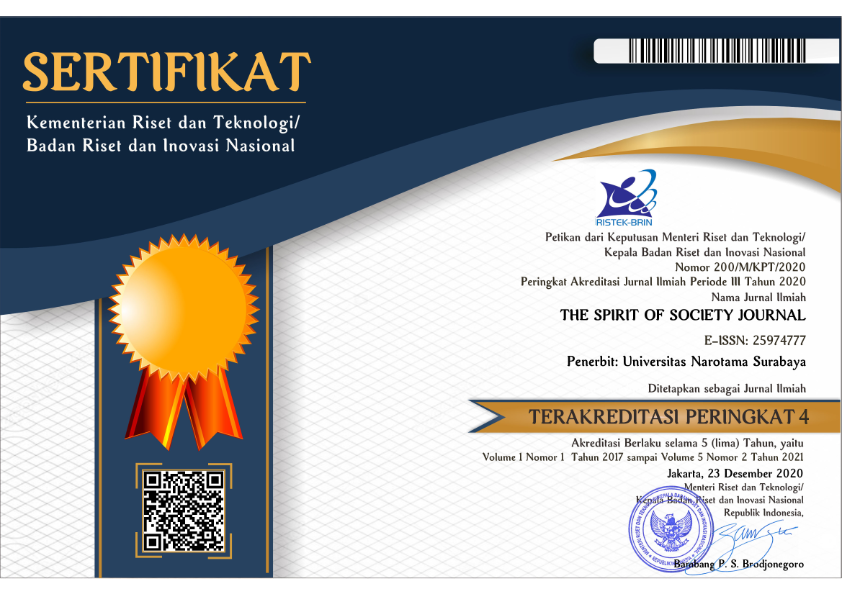Employee Discipline to Increase Productivity at U.D. Rahayu Kediri Salt Company
Abstract
This study aims to determine the application of work discipline in U.D. Salt Company. Rahayu Kediri to increase employee work productivity. The type of research used in this study is qualitative descriptive research. Interviews, observation, and documentation carry out the method of data collection. The data used are primary data and second data. The second data used includes employee attendance data, working hours, working days, sales targets, and sales realization in 2021.
The results showed that the work discipline of employees at U.D. Salt Company. Rahayu Kediri, with the application of work discipline through working hours and the number of working days to increase employee work productivity, has not been maximized. The number of working hours the company has set for 8 hours per day has not been fulfilled. This was proven in December 2021 that the number of working hours should be 6,336 hours per month with 33 employees, which can only be realized at 4,032 hours per day. Also, in other months, The application of work discipline through the number of days of permission from employees as many as 33, with the number of days that should be achieved by the company as much as 792 days per month is only realized on average. The average per month is 448 days, so there is a deviation of 344 days or 43% per month. It is necessary to increase supervision and communication between superiors and subordinates, coaching, and self-development of employees through training.
Downloads
References
Arikunto, Suharsimi. (1998). Research Procedure A Practice Approach. EditionRevision IV. Yogyakarta. Rineka Cipta.
Bate'e, Mario Magdalena. (2020). The Role of Work Discipline in Increasing Work Productivity in Pustu Desa Batulakna, Tuhenberua District, North Nias Regency, Jesya. Journal of Sharia Economics & Economics, Vol. 3, No. 1. January 2020. E-ISSN:2599-3410/P-ISSN:2614-3259.
Hidayah, Yuli. (2013). Influence of Work Discipline on the Work Performance of P.T. DINDAD (Persero). Diploma thesis, UIN Sunan Gunung Djati Bandung.
Romadon, Syahri, Yanti Prasmawati. C.D.K. (2017). The influence of the physical work environment on work productivity. Bina Darma University, 3 (12), 1-12.
Saragih, Ngalemisa BR. (2019). Work discipline relationship in employees of Afdeling I PT Perkebunan Nusantara IV Adalina Medan. Thesis, Faculty of Psychology, Medan Area University.
Sugiyono. (2018). Quantitative, Qualitative, and R&D Research Methods. Bandung: Alfabeta.
Sukmadinata, Nana Syadih. (2017). Educational Research Methods. Bandung : PT Remaja Resdakarya.
Sutardjo, Hidayat Tri. (2020). The Importance of Work Discipline and Its Benefits for the Company. Ekrut Media.
Sutrisno, E. (2019). Human Resource Management. Jakarta : Prenada Media Grub.
Wibawa, F. D. (2018). The Effect of Communication, Conflict, Work Stress, and Work Environment on Employee Productivity. Journal of Human Resource Management.
Copyright (c) 2023 THE SPIRIT OF SOCIETY JOURNAL : International Journal of Society Development and Engagement

This work is licensed under a Creative Commons Attribution-ShareAlike 4.0 International License.












